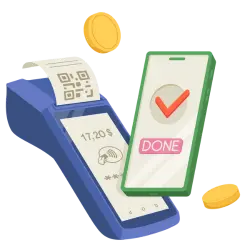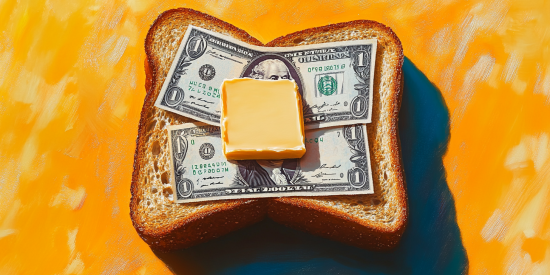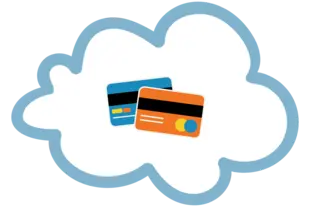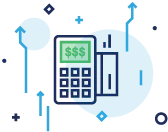You can’t run a successful business in restaurant management without a reliable point-of-sale (POS) system. Enter Toast POS — a solution designed to meet the distinctive needs of the restaurant industry. In this in-depth review, we unravel the layers of Toast POS, exploring its features, pricing structures, and more to see if it’s the right solution for you.
What Is Toast POS?

Toast POS is a cloud-based point-of-sale (POS) system designed to meet the unique and complex needs of the restaurant industry. Founded in 2012 by Aman Narang, Steve Fredette, and Jonathan Grimm, Toast started in a small Boston apartment and has since evolved into a dominant force in the POS market.
Toast POS offers a comprehensive suite of features, including hardware options tailored to the demands of a busy kitchen, intuitive menu management tools, seamless payment processing, and advanced reporting capabilities. It distinguishes itself from other POS systems with its exclusive focus on restaurant operations, ensuring that every aspect of the system is optimized for efficiency, durability, and ease of use in a fast-paced restaurant environment.
Toast POS Pros and Cons
Pros
- Comprehensive Support: Toast provides 24/7 phone, email, and chat support, ensuring continuous assistance for users.
- Free Plan: Restaurants with up to two POS terminals can benefit from a free plan, offering a cost-effective option for smaller operations.
- In-House Payroll Software: Toast offers in-house payroll software for real-time tracking of staff hours, aligned with local labor laws.
- Online Ordering Inclusion: Some plans include online ordering functionality, streamlining the restaurant process, and enhancing customer convenience.
- Built for Restaurants: Toast is purpose-built exclusively for restaurants, ensuring that its features are tailored to the specific needs of the food service industry.
Cons
- Contract Requirement: A potential downside is the requirement for a two-year contract, which may limit flexibility for certain businesses.
- Limited Payment Processor Integration: Toast doesn’t integrate with third-party payment processors, restricting options for businesses with existing relationships.
- Complex Installation and Setup: A few users have found the self-installation process complicated, sometimes requiring intervention from company representatives.
Toast POS Features and Benefits
Toast’s hardware is built to withstand the demanding restaurant environment, making it a comprehensive solution for POS systems. Here’s a list of features that Toast can offer restaurant merchants:

The Toast POS terminal
The Toast Flex is Toast’s version of the standard POS terminal. It accepts all payment types and can be set up in 30 minutes. This point-of-sale hardware is crafted for restaurants, with an adjustable design to fit within a restaurant’s decor. The spill-proof, IP54-rated technology ensures durability in the face of spills, grease, dust, and heat. The 14″ screen, equipped with a G-Sensor, accelerates ordering workflows, enhancing the speed of service and increasing revenue.

Handheld Toast POS
The Handheld Toast POS, accompanied by a mobile and tablet app, empowers restaurants with versatile hardware options. This includes card readers, Toast Flex checkout terminals, and self-service kiosks. Toast Go 2, a server handheld device, facilitates order taking, payment processing, and real-time order notifications. It boasts a 24-hour battery life and versatile payment options. Additionally, Toast Flex for the kitchen ensures seamless order integration and durability in challenging kitchen environments, while Toast Kiosk offers customers a self-service ordering experience.

Restaurants Menu Management
Toast’s cloud-based POS system allows restaurant owners to manage their menus. It allows real-time customization across multiple locations, the addition or removal of menu items, price adjustments, and modifications to descriptions. The scheduling tool facilitates the creation of distinct menus for different days or times, supporting diverse promotions and changes from a single device.

Inventory Management
Toast’s inventory management capabilities are designed to streamline and optimize restaurant operations by providing comprehensive tools for tracking and managing stock. The system allows restaurant owners to monitor the cost of each ingredient, ensuring precise cost control and reducing wastage. Real-time inventory updates are automatically synchronized with sales, providing accurate data without the need for manual entry. This helps maintain consistent portion sizes and manage inventory levels efficiently. Additionally, Toast’s inventory management integrates seamlessly with its POS system, enabling easy tracking of sales and inventory across multiple locations.

Integrations
With over 80 integrations, including popular platforms like ExpandShare, Doordash, Appfront, Shipday, and Lunchbox, Toast ensures a streamlined approach to data sharing and accessibility across interfaces. This extensive integration capability sets Toast apart.

Multiple Ways To Accept Orders
In addition to standard terminals, Toast offers diverse order acceptance options catering to various customer preferences. This includes self-serve kiosks for independent ordering and a Mobile Order & Pay system for dine-in guests to order and pay from their devices. The Toast TakeOut app provides app-based ordering, while online ordering linked to the POS system facilitates real-time delivery tracking.

Team Management
While Toast POS offers various team management features, these are available exclusively with the custom plan. Notable among them are tips, scheduling, payroll, and team management, with the standout component being the Toast Payroll & Team Management system. This system streamlines employee onboarding and payroll processes and ensures prompt payments.

Customer Relationship Management
Toast POS places a strong emphasis on customer relationship management (CRM) through its comprehensive CRM database feature. This allows restaurants to collect and store valuable customer information efficiently. The platform enhances its CRM capabilities with integrated email marketing and loyalty program management, which are included in various plans and available as add-ons.
The loyalty program management feature enables restaurants to create personalized rewards programs using a straightforward point-based system. Customers can seamlessly link their profiles with credit cards for easy reward earning and redemption. Additionally, Toast’s CRM supports targeted email marketing by allowing the creation of customized mailing lists for different customer segments. This integration eliminates the need for third-party email management platforms, streamlining marketing efforts and improving customer engagement.

Reporting and Analytics
Toast POS system includes reporting features that are accessible across all plans. The Location Overview feature provides real-time insights into net sales, sales growth, and labor costs across all your locations. Automated daily email updates track fluctuations, ensuring businesses stay informed of important changes.
With cloud-enabled reporting and a user-friendly interface, users can access data anywhere. Comparative reporting allows easy comparison of sales data across locations or time periods. Additional filters, like day-of-the-week and product mix reports, further enhance the depth of business insights.
Toast POS Pricing Options & System Plans
Toast POS offers a flexible pricing structure that includes software plans, hardware options, and payment processing fees to cater to various business needs.
Toast’s software plans are designed for different business sizes and requirements:
- Quick Start Bundle: This free plan includes essential features such as order and table management, reporting and analytics, menu management, and 24/7 customer support.
- Core Plan: Priced at $69 per month, it allows hardware customization and includes additional functionalities like team management tools and API access.
- Growth Plan: Starting at $165 per month, this plan builds upon the Core plan by adding Toast Online Ordering, Toast Delivery Services, and the Toast TakeOut App. Users appreciate the flexibility offered by these software plans
Toast offers a Build Your Own plan with custom pricing for businesses with specific needs or multiple locations. This allows establishments to tailor their features, including online ordering, payroll and tips management, third-party integrations, automated inventory, employee benefits, employee scheduling, guest marketing, loyalty, and gift cards.
Toast also provides a Restaurant Basics Package for new restaurants, priced at $110 per month plus $4 per employee per month. This package combines elements from the Core plan and introduces features like Payroll Lite and Scheduling Lite, as well as additional employee management tools such as business insurance, Vestwell 401k, and the Toast PayCard.

Pricing and Fees
Toast POS offers a range of hardware options to complement its software plans. These include the Handheld Starter Kit, Countertop Starter Kit, and Guest Self-Service Starter Kit. However, the hardware cost is not fully transparent and may vary depending on your specific needs.
Payment Processing for Toast
Toast POS adopts a flat-rate payment processing model with fees tailored to different business scenarios:
- Pay-As-You-Go Option: For businesses that opt for the pay-as-you-go hardware option, the transaction fee is 2.99% plus 15 cents per transaction.
- Upfront Hardware Payment: Businesses that choose to pay for their hardware upfront benefit from a reduced card-present transaction fee of 2.49% plus 15 cents per transaction.
- Card-Not-Present Transactions: The fee for card-not-present transactions with upfront hardware payment is 3.50% plus 15 cents per transaction.
It’s important to note that establishments choosing starter kits must commit to a two-year payment processing contract. This long-term contract may be a consideration for businesses evaluating their payment processing options and overall flexibility.
Toast POS Customer Support and Service
Toast POS stands out with its 24/7 customer support available across all plans, including the Starter plan, with no monthly fee. This continuous support caters to the non-standard business hours of many restaurants, ensuring help is always available when needed.
In addition to conventional support channels, Toast provides a comprehensive array of self-service resources. These include a Knowledge Base that covers various categories such as Marketing, Technology, Management, and Staffing, offering detailed guides and troubleshooting tips. The Toast Community offers an online forum and in-person event series, fostering user connections and engagement and allowing restaurant owners to share experiences and advice.
How Toast Compares to Alternatives

Toast POS vs Square
Between the Toast POS system and Square, Toast is the preferred choice for the restaurant industry, offering specialized features like 24/7 customer service, durable hardware, and comprehensive online ordering tools. While both excel in payment processing, the decision between the two depends on specific business needs. Toast is ideal for restaurants with multiple locations, kitchen display systems, drive-throughs, and bar tabs, whereas Square caters to a broader range of businesses with features like checking, payroll, barcode scanning, and inventory tracking, along with transparent and consistent pricing.
Square is considered more cost-effective for smaller eateries, while Toast stands out for large, full-service, and expanding restaurants with its restaurant-focused reports and data-driven menu engineering. The choice ultimately depends on factors like features, price, support, and usability, with Square being preferable for cost-conscious businesses and Toast for those seeking a top-of-the-line restaurant management system.

Toast POS vs Clover

Choosing between Toast and Clover POS systems? Our research leans toward Clover for its extensive features and superior CRM, making it ideal for larger businesses. According to Toast POS reviews, Toast is a solid choice, especially for smaller businesses with complex inventories, offering a robust free plan and competitive restaurant features.
If you prioritize upfront knowledge of POS system costs, extensive integrations, and support for various payment methods, Clover is the way to go. If you own a restaurant and value 24/7 customer support, industry-tailored solutions, and comprehensive POS reports and analytics, Toast is a great fit.

Toast vs TotalTouchPOS
When comparing Toast vs TotalTouchPOS, Toast emerges as the more comprehensive software, particularly well-suited for larger restaurants with complex operations. It excels in managing extensive menus, floor plans, staff, and inventory. Additionally, Toast is ideal for fast-casual chains seeking enhanced analytics, delivery integration, and leveraging Google tools.
In contrast, TotalTouchPOS is a great choice for small to mid-sized restaurants, food trucks, and establishments that prefer the convenience of an iPad-based POS. It offers hardware and payment processing flexibility, making it suitable for quick-service restaurants requiring fast and reliable tableside ordering. It also stands out with easy-to-use features, built-in loyalty, and marketing options for single or multi-location restaurants that don’t need extensive analytics.

Toast vs Touchbistro
When comparing Toast POS vs. TouchBistro, both POS systems can meet the needs of various food and beverage establishments, including restaurants, cafes, bars, food trucks, and breweries. They share similar core POS features and offer a range of add-ons and integrations to address diverse challenges.
Toast is a more suitable option for niche restaurant concepts seeking a bespoke and flexible solution. It provides enterprise-level features, customization opportunities, and a wide array of third-party integrations catering to specific niches.
On the other hand, TouchBistro excels as an all-around POS solution, particularly for single and multi-location restaurants, restaurant groups, and regional chains. TouchBistro is known for its integration capabilities, transparent terms, and compatibility with Apple.
Toast Reader Customer Reviews
Users across diverse industries consistently praise Toast POS for its user-friendly interface, adaptability to different business sizes, and efficient features.[1]GetApp. “Toast POS Reviews – Pros & Cons, Ratings & more – GetApp.” Accessed May 30th, 2024. The system stands out for its versatility, accommodating the needs of both small establishments and larger enterprises.
Users appreciate the integration of contactless payments and mobile-friendly options, which enhances transaction processes. However, users expressed minor concerns, such as wanting additional options and visual improvements. Overall, the sentiment underscores Toast POS as a valuable and reliable tool for day-to-day business operations.
Final Verdict: Is Toast a Good POS System?
Toast POS is a robust, cloud-based system designed specifically for restaurants, featuring custom hardware and comprehensive management tools. It offers versatile POS terminals, handheld devices, and solutions for menu customization and inventory tracking.
However, Toast requires a two-year contract to get started with them, which can be a big commitment for new businesses. Pricing plans range from a free starter plan to other customizable options, but keep in mind that hardware costs can be a little murky. A payment service provider like PaymentCloud can be a good alternative to Toast if you want more flexible rates and extensive industry experience.
Choosing the right POS system is important, especially when you’re just starting your business. The right solution can significantly impact your restaurant’s efficiency and customer satisfaction. Take your time to research and select the best credit card processing solution for your needs, and don’t hesitate to reach out if you have any questions.
Frequently Asked Questions (FAQs)
How long can it take to set up a Toast POS system?
Setting up a Toast POS system can vary depending on factors like the size and complexity of the restaurant, menu configuration, and the extent of customization needed. Generally, a comprehensive setup may take a few weeks, including hardware installation, menu configuration, and staff training. Smaller establishments with simpler requirements may have a quicker setup.
Does hardware come included with Toast
The information provided does not explicitly mention hardware for Toast POS as included or excluded. POS hardware, including terminals, card readers, and accessories, is typically available for purchase from Toast. However, the specific details and costs may vary based on the chosen hardware options and the nature of the agreement with Toast.
Does Toast take a percentage of sales?
Toast POS uses a flat-rate payment processing model with fees tailored to different scenarios. It does not explicitly mention taking a percentage of sales. Instead, it provides information on transaction fees based on the payment processing model chosen, such as pay-as-you-go or upfront hardware payment.
Does Toast POS work without the Internet?
Toast POS relies on an internet connection for its full range of features. While some basic functions may work offline, such as order entry, the system’s optimal performance, real-time data syncing, and access to advanced features like online ordering and reporting depend on a stable internet connection. A reliable internet connection is recommended for seamless operations.







